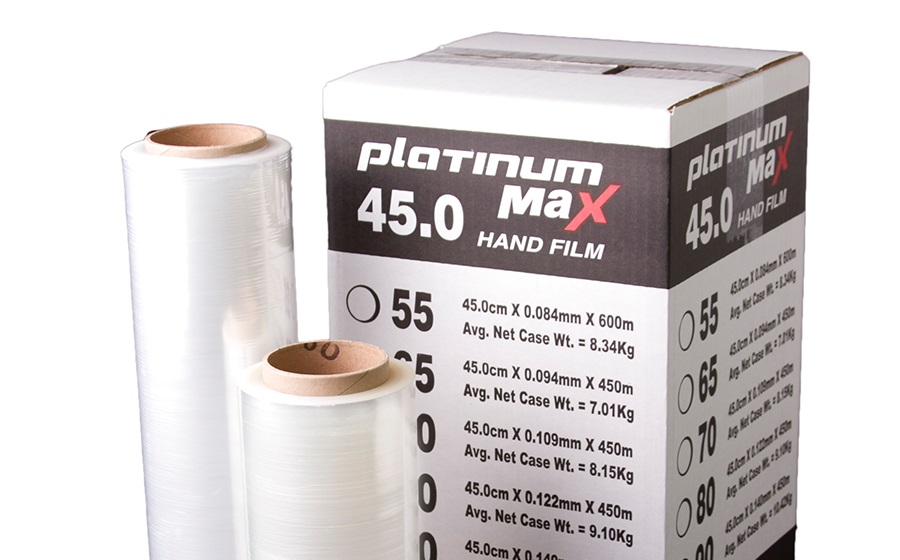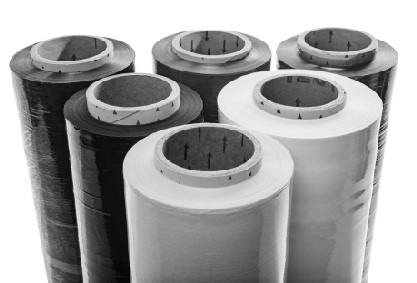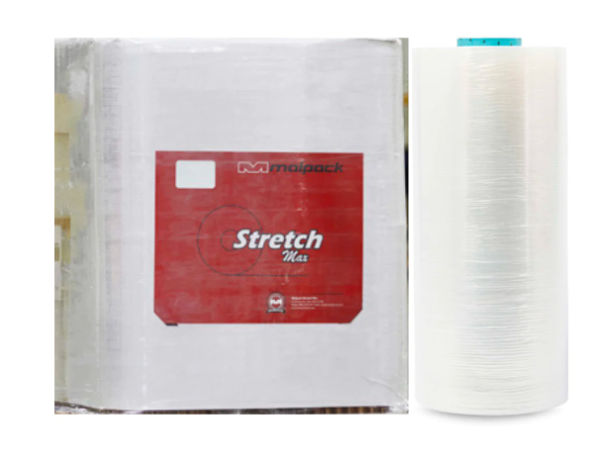Toronto Stretch Wrap
Toronto Stretch Wrap and Danshar Polybag and Resin Inc. offers you bundling solutions. When dispatching your products, you often do so by pallet load. You will want to take extra steps to ensure your products remain in excellent condition upon arrival. Often, damage can occur due to ineffective stretch wrapping. Damaged goods will not only cost you a lot of money but your reputation as a reliable business.
Stretch wrap is a highly stretchable plastic made from linear low-density polyethylene (LLDPE). Stretch wrap is tightly stretched and wrapped around a load of products to keep the products on the pallet. As stretch film is wrapped, tension is applied to the film and the elasticity holds the load together firmly.
In addition, stretch wrap also has high elasticity, stretch recovery, adhesive abilities, and is puncture resistant, which can prevent potential tampering of goods. Stretch film not only holds products together during transportation but to also holds products together in storage.
There are two ways to make stretch film, cast and blown. Cast and blown film offer distinct advantages and disadvantages. Cast film is made by melting granules or pellets of solid plastic material. The material is then squeezed or extruded through a flat die. After the plastic material is extruded, it is taken to a chilled roller where it becomes a solid. This process creates machine or hand film.
Cast film offers the following advantages over blown film:
- Excellent clarity
- Quiet application of material
- Better one-sided cling
- More puncture and tear resistance
- Consistently thick
- Less expensive
Though manufactured almost similarly, blown film is more difficult to produce than cast film, and requires more steps in its manufacturing process. Blown film produces stiffer film that is more difficult to stretch.
Blown film has the following disadvantages over cast film:
- Cloudy optics
- Noisy application of material
- Double-sided cling
- Highly puncture resistant but not tear resistant
- Adds unnecessary weight to loads
- More expensive
Stretch film usage also translates into cost reduction from lower handling costs to labour savings to transportation savings. When loads increase in quantity, weight, and size, the cost per unit handled decreases. Therefore, unitizing products will significantly reduce handling costs. Stretch film usage also saves on labour costs. This is due to the cost-effectiveness of handling unitized loads as opposed to loose boxes. Subsequently, employers will save their employees from hours of unnecessary work. This allows for a quicker flow of goods throughout factories, warehouses, and cross dock operations that require less manpower. Lastly, because unitized loads accelerate the pace at which goods move, transport vehicles will spend less time loading goods, which offers cost savings to companies, as well as customer satisfaction when goods are received in a timely manner.

Clear, Opaque or UV Stretch Film
There are different assortments of stretch film such as clear, opaque, and UV stretch film. Each stretch film can be used for a different purpose.
Clear film is used for easy identification and location of items. This is especially helpful when pallets are placed in storage and employees are required to keep inventory of merchandise.
Opaque stretch film has the following advantages over clear stretch film:
- Conceals valuable shipments from possible pilferage
- Prevents product damage from dust, dew, or rain
- Protects products from harmful UV Rays
- Good for colour coding products
- Outlasts clear stretch film when stored outdoors
UV stretch film protects and extends the life of products that are stored outdoors in the sun. Using UV stretch film is advised for any shipments that will be stored outdoors in direct sunlight for more than 60 days.
Hand Wrap or Machine Wrap?
Hand wrap is intended for hand applications and machine wrap is intended for applications by machine. There are significant differences in the characteristics of both types of stretch wrap. Hand wrap rolls are shorter and lighter than machine wrap rolls. Standard machine stretch wrap come in 20” wide rolls. Machine wrap can go up to 80 inches wide but require specific machine film carriages for the rolls to be able to be fit into the machine. Larger pallets require wider rolls to reduce the amount of turns or revolutions needed to wrap a pallet fully.
Conversely, hand wrap is available in a wide range of thicknesses or gauges, depending on what is being wrapped. Pre-stretched hand wrap may even be a thin 30-gauge thickness. Hand wrap that is heavier can be a 130-gauge thickness. Thicker stretch wrap offers better puncture resistance and increased stretch film memory than thinner stretch wrap. However, thicker stretch wrap requires more physical force and tension to stretch the film to its maximum stretch rate.
Like hand wrap, machine wrap is available in a large variety of thicknesses. Pre-stretched machine stretch film may be as thin as 30 gauges and thicker film may be available up to 150 gauges or 1.5 mil in thickness. Thicker machine stretch wrap is ideal for heavier pallets with sharp or jagged edges, as this film offers superior stretch and tear and puncture resistance.
One of the advantages of machine film over hand film is its ability to maintain consistent tension, allowing for higher stretch rates of film. Machine stretch wrap offers higher stretch rates up to and above 200 to 250 percent. The stretch rate that is obtained is contingent on the type of stretch film being utilized, as well as the stretch wrap machine settings. Conversely, users applying hand film must exert efficient physical labour to maintain consistent tension to obtain a stretch rate of 100 percent.
Linear Low Density Polyethylene Resin Stretch Wrap
Toronto Stretch Wrap Offers a Variety
Not all stretch film is the same. There are numerous brands of stretch film on the market today. Toronto Stretch Wrap and Danshar Polybag and Resin Inc. offers V-maxx, Platinum Max, and StretchMax brand stretch film.
Because we believe in quality and cutting costs for our consumers, Toronto Stretch Wrap and Danshar Polybag and Resin Inc. offers cast film only.
Contact us at Toronto Stretch Wrap and Danshar Polybag and Resin Inc. and we’ll find the perfect stretch wrap to suit your needs.
2899 Steeles Ave. W.,
Units 9 & 10,
North York, Ontario
M3J 3A1
Fax: 1-855-669-6184
For skid quantities of stretch wrap, resin, or plastic bags only, please call
416-993-6804
orderdesk@torontostretchwrap.com
By appointment.

